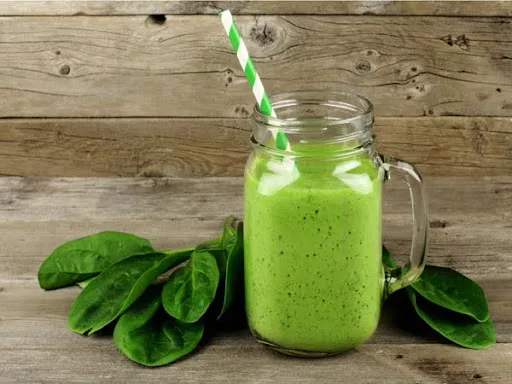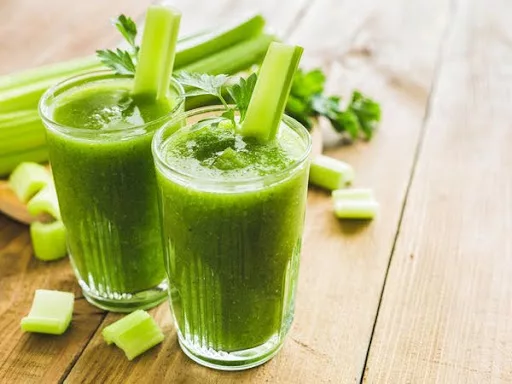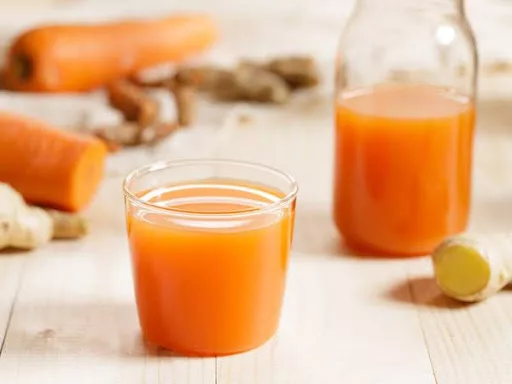Powerful health tips to help change your life!
Sign up to our health and wellness newsletter and receive a FREE health tips e-book to help you live your best life.
Contents
How & what do i do to follow a 7 day juice cleanse? How do i make the juices? The disadvantages (man cannot live on juices alone) Try some of these recipes as part of your 7 day juice cleanse So, is a 7-day juicing diet good for you? Will a 7-day juice cleanse help me lose weight? What should I eat after a 7-day juice cleanse? In SummaryIf you’ve been considering trying a 7 day juice cleanse for the first time, you might be asking yourself if the claims about its benefits are actually true.
Eye-catching headlines on social media often wax lyrical about the great results people achieve on a 7-day juice cleanse, such as weight loss, better gut health, detoxification, sharper thinking, and effective fat burning.
With so many wonderful results promised, it’s no wonder that many people are researching a 7-day juice diet! So what is the truth – is it worth your time, effort, and money?
Perhaps the popularity of juicing continues to grow because, in an instant world, we want instant results. We don’t want to wait to see a difference in the scales or to feel better. When we want change, we want it fast. A quick fix these days is where it’s at, and for that reason, a juice cleanse can feel like a worthwhile undertaking.
However, despite how well these eating plans have been promoted all over social media channels, there is some skepticism directed at juice cleanses, stating that they don’t actually work.
The response to that would be – ‘what do you want it to achieve from a 7-day juice cleanse?
In this blog, we want to share with you the truth of the matter and aim to answer the following questions:
A juice diet is often called a detox or a cleanse. It involves abstaining from eating for a period of time and only consuming juices made from the extracts of fruits and vegetables.
A primary goal is weight loss, but followers of a juice diet swear they feel cleaner and healthier after completing a week’s worth of juices. Ideally, the fruit used for the juices needs to be organic to ensure the body is getting the absolute best chance of consuming lots of vitamins and minerals.
Here are some guidelines on how to get the best results from your cleanse:
The combination of fruit and vegetables in your 7-day juice cleanse is very important. Research shows that a diet high in fruits and vegetables contains plenty of health-boosting antioxidants, minerals, and vitamins. These types of foods have been shown to reduce your risk of developing cancer, type 2 diabetes, and heart disease.
Although it may be tempting to make your juices only from sweeter-tasting fruits, remember that compared to veggies, fruits do have a much higher sugar content and therefore are not beneficial to your health in large quantities.
Shop-bought juices, in particular, are often full of added sugars which can create havoc in the body. Excess sugars are responsible for weight gain, inflammation, and high blood pressure.
For this reason, make your own low sugar juices and ensure your juices are made with two parts veggie and only one part fruit. Try fruits like apples, berries (blueberries, strawberries, raspberries), and pears.
A 7-day juice cleanse can undoubtedly shift the pounds quickly, however long term, a juice cleanse is not a sustainable way to live. The human body needs dietary fibre to help reduce many health risks such as weight gain, hypertension, cancers, bowel disease, and diabetes.
Remember, juices, unlike the whole fruit, lack dietary fibre, so look at a 7-day juice cleanse as how it needs to be treated, effective short term, but not a lifelong way to live.
Making sure that you have variety in your 7-day juice cleanse is a vital component for sticking to the programme. Use a good quality juicer, preferably a ‘cold pressed’ model, and remember to try to buy organic wherever possible and wash all produce before use.

Ingredients: 1 green apple, 1 medium celery stalk, a handful of baby spinach, ½ lemon juice
Method: Wash all items thoroughly, do not remove the skin or the stalks, feed all items through your juicer, and drink immediately but slowly. Alternatively, place in an air-tight container and consume within 24 hours.

Ingredients: 1 green apple, thumbnail fresh peeled ginger, 4-inch chunk cucumber, 3 sticks medium sized celery stalks
Method: Wash all items thoroughly, peel the ginger before placing in the juicer, put the rest of the items through the juicer machine, drink immediately, or place in fridge, in an air-tight container and consume within 24 hours.

Ingredients: 1 green apple, 1 large carrot, thumbnail peeled ginger, handful mint, (optional)
Method: Wash all items thoroughly, feed each item through your juicer, stir well and enjoy immediately. Alternatively, place in an air-tight container and pop in the fridge for up to 24 hours.
Well, the answer to this is to ask yourself the question, ‘What do I want a 7-day juice cleanse to do for me?’ Weight loss? Feel cleaner? Stop me eating crap? Boost my confidence in achieving a detox? Start a new beginning for healthier living?
Although we can say that there is no scientific evidence to support the value of juicing, we also need to ask, “well, why would there be any scientific research carried out on juicing” as no particular organisation would stand to benefit, no matter how positive the results may be.
The fact is that consuming more fruits and vegetables in any diet is no doubt a beneficial habit to practise. That doesn’t mean to say that all of your fruit and veggies need to be juiced before consumption. Could we say that juicing is beneficial in the right quantity?
Could it supplement in part to a healthy diet? Yes absolutely. The anecdotal evidence is there. Man cannot live on juices alone, it’s true, but ask anyone who has completed a juice cleanse.
The vast majority will say that they feel lighter, brighter, more confident, and most importantly, a juice cleanse can draw a line under negative eating habits and inspire a new, more mindful way of taking care of the body.
To put a juice cleanse into perspective. It is not a long-term way of living due to the lack of fibre and protein. In addition, its long-term practice could slow your metabolism, which would be detrimental to weight loss or effective weight management.
Yes, research shows that people can lose 1-2lbs of weight per day on a juice cleanse. Ultimately, this figure is influenced by your starting weight, metabolic rate, and activity levels. 7-day juice cleanses can get a lot of praise from those who want to quickly see a significant change on the scales.
Although fruits and vegetables are chock-full of goodness, remember a long-term juice diet would not provide your body with everything it needs to sustain healthy weight loss.
Any diet that severely restricts calories and food choices will lead to nutrient deficiencies, and this will lead to cravings. A typical juice only provides about 100 calories per serving and certainly does not provide the body with enough protein. Research shows that optimal protein intake is crucial for good weight management, blood sugar balance, and for maintaining lean muscle mass.
So, in summary, if you’re planning to go on a juice diet for weight loss, yes, you can drop a good few pounds within days, but remember you could lose some muscle as well as fat. You also need to understand that if you return to the normal eating habits that got you overweight in the first place, the weight lost will quickly be regained.
After completing a 7-day juice cleanse, food choices need to be light, wholesome, and not too taxing on the digestive system. Start to focus on plant-based proteins and begin to eat fruits and veggies in their ‘whole’ state, which will help get your bowel moving and keep you feeling full for longer.
Give some of these a try:
Regard your juice cleanse as part of an effective way of getting more nutrients into your life. Honour the whole detox process if you intend to undertake a juice cleanse and see it as a short-term kick start to draw a line under negative lifestyle habits and the doorway to a new beginning. Most importantly, be kind to yourself and honour the wonderful machine that is your body. It will be with you until your last day on earth!
T. 01536 712 219 (9am-5.30pm)
E. enquiries@homefieldgrange.co.uk

Live life well
Sign up to our health and wellness newsletter and receive a FREE health tips e-book to help you live your best life.